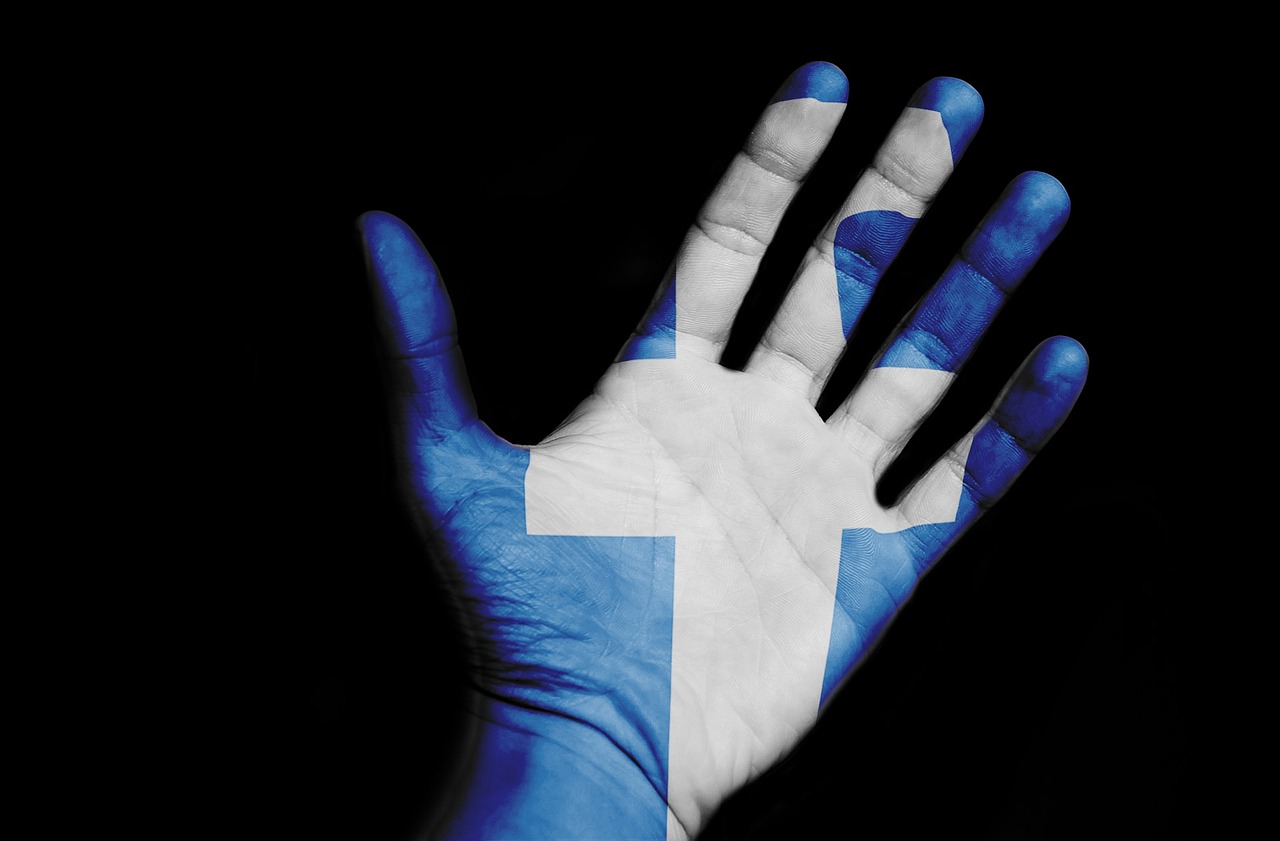Dealing with Trolls on Social Media - A Safety Guide
This guide offers practical strategies for identifying and managing online trolls, ensuring a safer and more positive social media experience for all users. In today's digital age, social media platforms are a double-edged sword; they can connect us with friends and family, but they can also expose us to negative interactions, especially from those who thrive on chaos—trolls. Understanding how to navigate these turbulent waters is essential for anyone looking to maintain their mental well-being while engaging online.
Online trolls thrive on provoking emotional reactions. But who are these trolls, really? They are often anonymous users who derive pleasure from stirring up trouble and watching the fallout from their antics. Their motivations can be varied, ranging from boredom to a desire for attention, or even deeper psychological issues. Understanding their behavior is the first step in managing it effectively. There are several types of trolls, each with their own distinct tactics, and recognizing these can help you shield yourself from their negativity.
Recognizing troll behavior is crucial for effective management. Not every negative comment is trolling; sometimes, people just have differing opinions. However, there are common signs that can help you differentiate between genuine criticism and malicious intent. For instance, trolls often resort to inflammatory language, exaggeration, and personal attacks rather than constructive dialogue. It's essential to develop a keen eye for these red flags, as they can serve as your first line of defense against unwanted negativity.
Trolls employ various tactics to incite chaos, including personal attacks and misinformation. Understanding these methods can empower users to respond appropriately and minimize their impact. Below are some typical tactics:
- Personal Attacks and Insults: These are perhaps the most recognizable forms of trolling. Trolls often target sensitive topics, aiming to provoke emotional responses that can escalate conflicts.
- Misinformation and Deception: Spreading false information is another common tactic. Trolls may deliberately distort facts to confuse others, which can lead to unnecessary arguments and damage reputations.
Personal attacks are a hallmark of trolling. These insults aim to belittle and provoke, often targeting sensitive topics to elicit strong reactions. Imagine someone throwing stones while you’re trying to build a beautiful sandcastle; that’s what trolls do in the realm of social media. They thrive on the chaos that ensues when someone reacts to their provocations. Such behavior can lead to a toxic environment, making it crucial to identify and address these attacks swiftly.
Trolls often spread false information to confuse and mislead. This tactic can escalate conflicts and damage reputations, emphasizing the need for vigilance. For example, if a troll spreads a rumor about a public figure, it can lead to a flurry of negative comments and even affect that person's career. Therefore, it’s important to verify information before reacting to it. Always ask yourself: Is this credible? Where did this information come from?
The emotional toll of trolling can be significant, leading to anxiety and depression. Being targeted by trolls can feel like being in a storm—overwhelming and disorienting. The constant barrage of negativity can chip away at your self-esteem and mental health. Understanding these psychological consequences is vital for anyone who finds themselves in the crosshairs of online trolls. It’s not just about the comments; it’s about the impact they have on your well-being.
Effective strategies are essential for dealing with trolls. Here are some actionable tips for users to protect themselves and maintain a healthy online presence:
Utilizing blocking and reporting features can significantly reduce troll interactions. Most social media platforms have built-in tools that allow you to block users or report inappropriate content. By taking these steps, you create a barrier against negativity, allowing you to focus on positive interactions instead. Remember, it’s not just about silencing trolls; it’s about creating a safer space for yourself and others.
Deciding whether to engage with trolls or ignore them is crucial. Engaging can sometimes escalate the situation, while ignoring can feel like letting them win. It's a delicate balance, and the best approach often depends on the context. If you feel confident and equipped to respond constructively, go for it! But if you sense that engaging will only lead to more frustration, it might be best to walk away.
Fostering a positive online community can deter trolls. Encouraging supportive interactions among users can create a buffer against negativity. Here are some ways to encourage a more positive environment:
- Promote Kindness: Share messages that uplift others and encourage kindness.
- Moderate Discussions: If you’re managing a group, set clear rules about acceptable behavior and enforce them.
- Support Each Other: Create a culture where users can report negative behavior without fear of backlash.
Q: What should I do if I encounter a troll?
A: The first step is to assess the situation. If the comment is clearly trolling, consider blocking or reporting the user. If you feel safe and confident, a calm, constructive response might also help.
Q: How can I protect my mental health while using social media?
A: Limit your exposure to negative interactions by curating your feed, using blocking tools, and taking breaks when needed. Surround yourself with supportive communities.
Q: Are all negative comments considered trolling?
A: No, not all negative comments are trolling. Genuine criticism can be constructive, while trolling typically involves personal attacks or misleading information.

Understanding Online Trolls
This guide offers practical strategies for identifying and managing online trolls, ensuring a safer and more positive social media experience for all users.
Online trolls are a persistent and often frustrating part of the social media landscape. They thrive on provoking emotional reactions, feeding off the chaos they create. But what exactly drives these individuals to engage in such disruptive behavior? Understanding their motivations is the first step in dealing with them effectively. Trolls can be motivated by a variety of factors, including boredom, a desire for attention, or even a misguided sense of humor. It's essential to recognize that their actions are often less about the content of their messages and more about the emotional responses they can elicit from others.
There are several types of trolls, each with their own unique tactics and objectives. Some might engage in light-hearted teasing, while others are more malicious, aiming to hurt and belittle others. The psychological impact of trolling can be profound, affecting individuals and communities alike. Victims of trolling often experience feelings of isolation, anxiety, and even depression. It's not just about the words that are thrown around; it's about the emotional fallout that can linger long after the comments have been made. This emotional toll can create a toxic atmosphere, making social media less enjoyable for everyone.
To further understand the phenomenon of trolling, it's useful to categorize the types of trolls we encounter online. Here are a few common types:
- The Provocateur: This type thrives on stirring up controversy and getting a rise out of people.
- The Harasser: Often targeting specific individuals, this troll aims to intimidate and belittle.
- The Misinformer: This troll spreads false information, often to confuse or mislead others.
Recognizing these types can help users better prepare for interactions with trolls. By understanding their motivations and behaviors, we can implement more effective strategies to combat their negative influence. The key is to remain vigilant and not allow their actions to dictate our emotional responses. Instead, we can choose to create a more positive and supportive online environment.
Recognizing troll behavior is crucial for effective management. This part outlines common signs of trolling, helping users differentiate between genuine criticism and malicious intent.
Trolls employ various tactics to incite chaos, including personal attacks and misinformation. Understanding these methods can empower users to respond appropriately and minimize their impact.
Personal attacks are a hallmark of trolling. This section discusses how these insults aim to belittle and provoke, often targeting sensitive topics to elicit strong reactions.
Trolls often spread false information to confuse and mislead. This part highlights how misinformation can escalate conflicts and damage reputations, emphasizing the need for vigilance.
The emotional toll of trolling can be significant, leading to anxiety and depression. This section explores the psychological consequences of being targeted by trolls.
Effective strategies are essential for dealing with trolls. This section provides actionable tips for users to protect themselves and maintain a healthy online presence.
Utilizing blocking and reporting features can significantly reduce troll interactions. This part explains how to effectively use these tools to create a safer social media environment.
Deciding whether to engage with trolls or ignore them is crucial. This section discusses the pros and cons of both approaches, helping users make informed decisions.
Fostering a positive online community can deter trolls. This section outlines ways to encourage supportive interactions and build resilience against trolling behavior.
Q: What should I do if I encounter a troll?
A: It's best to assess the situation. If the comments are harmful, consider blocking or reporting the user. Engaging can sometimes escalate the situation.
Q: How can I protect my mental health from trolling?
A: Surround yourself with supportive friends online, take breaks from social media, and remember that trolls often seek to provoke a reaction.
Q: Are all negative comments considered trolling?
A: Not necessarily. Genuine criticism can be constructive, while trolling is characterized by malicious intent and personal attacks.

Identifying Troll Behavior
Identifying troll behavior is crucial for effective management of online interactions. Trolls often disguise their malicious intent under the guise of humor or criticism, making it essential for users to develop a keen eye for spotting these behaviors. One of the first signs to watch for is a pattern of provocation. Trolls thrive on inciting emotional reactions, so if someone seems to be consistently pushing buttons or making inflammatory comments, they might be trolling. It's akin to a jester trying to get a rise out of the king—only this time, the king is the online community.
Another important aspect to consider is the context of the comments. If a user frequently makes derogatory remarks that are out of place in a constructive discussion, this is a red flag. Trolls often target sensitive subjects, aiming to provoke outrage or distress. For instance, if someone jumps into a discussion about mental health with sarcastic remarks or dismissive comments, they are likely trying to stir the pot rather than contribute to a meaningful dialogue.
Moreover, trolls tend to employ specific tactics that can help you identify them more easily. Here are some common signs to look out for:
- Excessive Use of Caps Lock: Shouting in all caps can be a tactic to draw attention and provoke reactions.
- Off-Topic Comments: If a user consistently strays from the subject matter, they may be attempting to derail the conversation.
- Repetitive Patterns: Trolls often repeat the same arguments or phrases, showcasing a lack of genuine engagement.
- Anonymous Profiles: Many trolls hide behind fake accounts, which can make them feel invincible and emboldened to attack.
Understanding these behaviors not only helps in identifying trolls but also empowers users to respond appropriately. Just like a detective piecing together clues, recognizing these patterns can help you differentiate between genuine criticism and malicious trolling. This awareness is your first line of defense in maintaining a positive online experience.
In addition to recognizing these behaviors, it's essential to be aware of the psychological tactics trolls use. They often exploit vulnerabilities and sensitive topics to elicit strong emotional responses. This is where the emotional toll can become significant, leading to feelings of anxiety or frustration. By identifying these behaviors early, users can take steps to protect themselves and minimize the impact of such negativity.
Ultimately, being able to spot troll behavior is like having a radar for online interactions. It allows you to navigate the digital landscape more safely and effectively, ensuring that your social media experience remains a positive one.

Common Tactics Used by Trolls
Trolls are like digital pests, lurking in the shadows of social media, waiting for the perfect moment to strike. Their tactics are as varied as they are cunning, designed to provoke, confuse, and disrupt. Understanding these tactics is crucial for anyone who wants to maintain a positive online experience. One of the most common methods they use is personal attacks. This involves targeting individuals with insults that are often personal and deeply hurtful. Trolls thrive on the emotional reactions these attacks provoke, aiming to elicit anger or sadness. For instance, they might comment on someone's appearance, intelligence, or personal beliefs to trigger a response. It's important to recognize that these attacks are rarely about the individual being targeted; instead, they reflect the troll's desire for attention and chaos.
Another tactic that trolls frequently employ is the spread of misinformation. By sharing false or misleading information, they aim to create confusion and sow discord within communities. This could involve anything from sharing fake news articles to distorting facts to fit their narrative. The impact of misinformation can be devastating, leading to conflicts among users and damaging reputations. For example, a troll might spread rumors about a public figure, which can lead to a backlash and unwarranted outrage. It’s essential to approach such information with skepticism and verify facts before reacting, as trolls often thrive on the chaos that misinformation creates.
Additionally, trolls may resort to gaslighting, a tactic that involves manipulating someone into questioning their own reality. This can manifest in comments that dismiss genuine concerns or experiences, making the victim feel as though they are overreacting or being unreasonable. This psychological manipulation can be incredibly damaging, leading individuals to doubt their perceptions and feelings. In essence, trolls are masters of deception, using a combination of emotional manipulation and false narratives to achieve their goals.
To illustrate these tactics, consider the following table that summarizes some common trolling behaviors:
| Tactic | Description |
|---|---|
| Personal Attacks | Insults aimed at provoking emotional responses. |
| Misinformation | Spreading false information to create confusion. |
| Gaslighting | Manipulating victims into doubting their reality. |
Understanding these tactics can empower users to respond more effectively. Instead of reacting impulsively, recognizing a troll's methods allows individuals to maintain their composure and avoid falling into the trap set by these online adversaries. Remember, trolls seek to provoke and disrupt; by staying informed about their tactics, you can protect your online space and contribute to a more positive digital environment.

Personal Attacks and Insults
When it comes to trolling, are often the bread and butter of a troll's toolkit. These verbal assaults are designed not just to annoy, but to provoke an emotional response that can escalate the situation. Think of it like a bee sting; the initial pain is sharp, but the lingering irritation can haunt you long after. Trolls aim for that sweet spot where they can get under your skin, often targeting sensitive subjects that they know will elicit strong reactions.
These attacks can manifest in various forms, from harsh criticisms of your opinions to outright derogatory comments about your appearance or lifestyle. The goal is simple: to make you feel small, insignificant, or even ashamed of who you are. For instance, a troll might comment on a social media post with something like, “Who do you think you are, giving advice? You’re a nobody!” This type of comment is not just an insult; it’s a calculated attempt to undermine your credibility and provoke you into a defensive reaction.
Moreover, personal attacks can have a ripple effect. They not only target the individual but can also create a hostile environment for others who may witness the interaction. This is particularly damaging in community spaces where the aim is to foster open dialogue and support. The psychological impact can be profound, leading to feelings of isolation and discouragement. It’s essential to understand that while trolls thrive on chaos, they can also inadvertently reveal the strength of a community when members rally together against such negativity.
To effectively deal with personal attacks, it’s crucial to recognize them for what they are: manipulative tactics designed to provoke. Responding with anger or hurt often plays right into the troll's hands. Instead, consider these strategies:
- Stay Calm: Take a deep breath and don’t react immediately. Give yourself time to process the attack.
- Don’t Feed the Trolls: Engaging with them often only encourages more trolling. Sometimes, silence is the best response.
- Seek Support: Reach out to friends or community members who can provide encouragement and perspective.
In essence, personal attacks are a tool of the troll, designed to sow discord and provoke emotional turmoil. By understanding their motivations and employing effective strategies to manage these interactions, you can protect not only your mental health but also contribute to a more positive online atmosphere. Remember, the best way to combat negativity is through resilience and support from those who truly matter.

Misinformation and Deception
Misinformation and deception are two of the most insidious tactics employed by online trolls. These tactics not only confuse the audience but can also lead to significant emotional distress and misunderstandings within communities. Imagine walking into a crowded room where everyone is discussing a topic, but half of them are misinformed. You’d feel lost, frustrated, and maybe even angry. That’s exactly what trolls aim to achieve—chaos and confusion. They spread false information with the intent to mislead, manipulate, and provoke reactions that can escalate conflicts and damage reputations.
One of the primary ways trolls disseminate misinformation is through the use of sensational headlines or misleading snippets. They often share articles or posts without context, leading to a distorted understanding of the subject matter. For instance, a troll might share a news article that has been taken out of context, making it seem like a public figure said something outrageous when, in reality, the quote was misrepresented. This tactic is akin to playing a game of telephone, where the original message becomes increasingly distorted as it passes from person to person.
The consequences of such deception can be profound. Not only does it create division among users, but it can also lead to real-world implications, affecting public opinion and even influencing political decisions. To illustrate, consider the following table that outlines common types of misinformation tactics used by trolls and their potential impacts:
| Tactic | Description | Potential Impact |
|---|---|---|
| Fake News Articles | Fabricated articles designed to mislead. | Increased polarization and distrust. |
| Manipulated Images | Images altered to misrepresent reality. | Spread of false narratives. |
| Misleading Statistics | Data presented out of context to support a false claim. | Public misinformed about critical issues. |
The key to combating misinformation is vigilance. Users must develop a critical eye when consuming content online. Always consider the source of information, check for corroborating reports, and be wary of sensationalism. Engaging in discussions with a fact-based approach can also help in dispelling myths and educating others. Remember, the more informed you are, the less power trolls have to manipulate your emotions and perceptions.

Psychological Effects of Trolling
Online trolling can have profound and often devastating psychological effects on individuals. When someone becomes a target of trolling, they may experience a whirlwind of emotions ranging from anger to deep sadness. The anonymity that the internet provides emboldens trolls to unleash their venom without fear of repercussions, making their attacks feel even more personal and invasive. This can lead to a sense of helplessness, as victims may feel trapped in a cycle of harassment.
Many individuals report experiencing symptoms similar to post-traumatic stress disorder (PTSD) when subjected to prolonged trolling. This includes heightened anxiety, difficulty sleeping, and an overwhelming sense of dread when using social media platforms. The constant barrage of negativity can warp one’s self-image, leading to feelings of worthlessness or self-doubt. The emotional toll is not just limited to the individual; it can ripple out to affect their relationships, work, and overall quality of life.
Furthermore, the impact of trolling can manifest in various ways, including:
- Anxiety Disorders: Increased feelings of anxiety can lead to panic attacks and social withdrawal.
- Depression: Prolonged exposure to trolling can result in clinical depression, characterized by persistent sadness and loss of interest in activities.
- Isolation: Victims may distance themselves from social interactions, fearing further attacks or judgment.
- Low Self-Esteem: Continuous personal attacks can chip away at an individual's confidence and self-worth.
It's important to note that the psychological effects of trolling can vary widely among individuals. Some may develop resilience and learn to cope with the negativity, while others may find themselves struggling to recover. For many, the experience can feel isolating, as they may believe that no one else understands the pain or humiliation they are enduring. This is why creating a supportive environment is crucial. Victims should feel empowered to seek help and talk about their experiences with trusted friends or mental health professionals.
In conclusion, the psychological effects of trolling are serious and deserve attention. By understanding these impacts, we can foster a more compassionate online community where individuals feel safe and supported. Remember, no one should have to endure the pain of trolling alone.
- What should I do if I am being trolled? - It's essential to document the incidents, report the trolls, and consider blocking them. Don't hesitate to reach out to friends or professionals for support.
- Can trolling lead to long-term mental health issues? - Yes, prolonged exposure to trolling can contribute to anxiety, depression, and other mental health challenges.
- How can I support someone who is being trolled? - Listen to them, validate their feelings, and encourage them to seek help while reminding them they are not alone.

Strategies for Managing Trolls
Dealing with trolls can feel like navigating a minefield. One wrong step, and you could find yourself in a whirlwind of negativity. However, with the right strategies, you can effectively manage these online nuisances and protect your mental space. First and foremost, it's essential to understand that you are not alone; many users face similar challenges. By implementing a few practical techniques, you can create a safer and more positive social media experience.
One of the most powerful tools at your disposal is the ability to block and report trolls. Most social media platforms offer straightforward features that allow you to cut off communications with unwanted users. By blocking a troll, you prevent them from seeing your posts or engaging with you, effectively silencing their disruptive behavior. Reporting, on the other hand, alerts the platform to the troll's actions, which can lead to account suspension or other consequences. This dual approach not only protects you but also helps maintain a healthier online environment for everyone.
Now, you might wonder whether it's better to engage with trolls or simply ignore them. This is a tricky decision that often depends on the situation. Engaging can sometimes defuse the situation, but it can also escalate tensions, drawing you into a back-and-forth that can drain your energy. On the flip side, ignoring trolls can deny them the attention they crave, but it may leave some comments unchallenged. Consider your own mental health and the context of the interaction when deciding how to respond. Sometimes, silence speaks volumes.
Moreover, fostering a supportive online community can act as a deterrent against trolling. When users actively promote positivity and kindness, it creates an atmosphere where trolling is less likely to thrive. Encourage your followers to support one another and to call out negative behavior when they see it. By building a network of resilience, you not only protect yourself but also empower others to stand strong against trolls. Remember, positivity is contagious!
In conclusion, managing trolls requires a combination of proactive measures and community support. By utilizing blocking and reporting features, carefully weighing your responses, and fostering a positive online environment, you can significantly reduce the impact of trolling on your social media experience. It's all about taking control and creating a space where negativity has no place.
Q: What should I do if I encounter a troll?
A: First, assess the situation. If the troll is being particularly aggressive or harmful, consider blocking and reporting them. If you feel safe to do so, you can also challenge their behavior calmly, but remember to prioritize your mental health.
Q: Can ignoring trolls really make a difference?
A: Yes, ignoring trolls can often strip them of the attention they seek, which may deter them from continuing their behavior. However, it’s essential to balance this with your own need to address harmful comments when necessary.
Q: How can I foster a supportive community online?
A: Encourage positive interactions by engaging with your followers in a kind and respectful manner. Share uplifting content and celebrate your community members’ achievements to create a culture of support.
Q: Are there any tools to help manage trolls?
A: Yes! Many social media platforms have built-in features for blocking and reporting users. Additionally, there are third-party tools and browser extensions that can help filter out negative comments and enhance your online experience.

Blocking and Reporting
When it comes to dealing with online trolls, one of the most effective tools in your arsenal is the ability to block and report them. These features, available on most social media platforms, can significantly reduce your exposure to toxic interactions and create a safer online environment. But how exactly do these features work, and why are they so crucial?
Blocking a user means that they can no longer see your posts or interact with you in any way. It's like putting up a virtual wall between you and the troll. This action not only protects your mental space but also sends a clear message that their behavior is unacceptable. Most platforms have straightforward processes for blocking users, typically found in the settings or user profile options. It’s a simple yet powerful way to regain control over your online experience.
Reporting, on the other hand, is about alerting the platform to inappropriate behavior. When you report a troll, you're not just protecting yourself; you're helping to create a safer community for everyone. Most social media sites have specific guidelines that outline what constitutes trolling or harassment. By reporting these behaviors, you contribute to the enforcement of these rules, which can lead to the removal or suspension of the offending account.
To give you a better idea of how these features work, here’s a quick comparison:
| Feature | Blocking | Reporting |
|---|---|---|
| Purpose | Prevent interaction | Alert platform to abuse |
| Effect | User cannot see or contact you | Potential action against the user |
| Who sees it? | Only you | Platform moderators |
| Frequency of use | As needed | Whenever you encounter abuse |
It's essential to remember that while blocking and reporting can be effective, they are not foolproof solutions. Trolls can create new accounts to continue their harassment, which is why it’s crucial to stay vigilant. If you find yourself frequently encountering trolls, consider adjusting your privacy settings to limit who can interact with your posts. For example, you can change your settings to only allow friends to comment or view your content. This extra layer of security can deter potential trolls from even attempting to engage with you.
In conclusion, blocking and reporting are vital strategies in your toolkit for managing online trolls. They not only protect you but also contribute to a healthier online community. Remember, you have the power to shape your social media experience, so don't hesitate to use these features whenever necessary!
- What should I do if a troll creates a new account after I block them? - Continue to block the new account and report it. Keeping your privacy settings tight can help prevent future interactions.
- Will blocking someone notify them? - Typically, no. Most platforms do not notify users when they are blocked, allowing you to take action without escalating the situation.
- How do I know if I should report someone? - If their behavior violates the platform's community guidelines—like making threats, posting hate speech, or harassing you—it's a good idea to report them.
- Can I block and report multiple users at once? - Most platforms allow you to block users individually, but you may need to report each user separately depending on the platform's policies.

Engaging vs. Ignoring
When it comes to dealing with trolls on social media, the age-old question arises: should you engage with them or simply ignore their antics? This dilemma can feel like choosing between stepping into a lion's den or walking away from a potential fight. On one hand, engaging with trolls can sometimes lead to a productive conversation, but more often than not, it spirals into a chaotic back-and-forth that leaves you feeling drained and frustrated. So, what’s the best approach?
Engagement can be tempting, especially if a troll has made a particularly outrageous comment that you feel compelled to address. You might think, “If I respond, maybe I can set the record straight or at least show others that I won’t be bullied.” However, this strategy often backfires. Trolls thrive on attention; they feed off your emotional responses. Every reply you give is like tossing gasoline onto a fire, igniting their desire for more chaos. Instead of resolving the issue, you might find yourself caught in an endless loop of insults and provocations.
On the flip side, ignoring trolls can feel like a cowardly move. It’s natural to want to defend yourself, but sometimes silence is the most powerful weapon. By not engaging, you deny them the satisfaction of a reaction. It’s like giving a child a toy they want but refusing to let them play with it. The lack of attention can lead trolls to lose interest and move on to their next target. However, ignoring can also have its downsides; it may leave your audience wondering why you didn’t address the issue, especially if the troll's comments are harmful or misleading.
To help you navigate this tricky terrain, consider the following factors when deciding whether to engage or ignore:
- Context: Evaluate the situation. Is the comment harmful, or is it just an attempt at humor? If it’s the former, a measured response might be necessary.
- Audience: Think about who’s watching. If your followers are looking for leadership and clarity, engaging might be the right call.
- Energy: Assess your emotional bandwidth. If you’re already feeling overwhelmed, it’s probably best to ignore the troll and focus on your well-being.
Ultimately, the decision to engage or ignore should be based on your personal comfort level and the specific circumstances of the interaction. Remember, every situation is unique, and there’s no one-size-fits-all answer. Just like in a game of chess, sometimes the best move is to hold your position and wait for the right moment to strike—or in this case, to speak up. Trust your instincts, and don’t hesitate to prioritize your mental health over a fleeting online argument.
Q: What should I do if a troll continues to harass me?
A: If a troll persists, utilize the blocking and reporting features available on most social media platforms. This can help create a safer environment for you and others.
Q: Is it ever okay to engage with a troll?
A: Engaging can sometimes be beneficial if you believe it will clarify misinformation or show support to others witnessing the interaction. However, weigh the potential emotional toll it may take on you.
Q: How can I protect myself from trolls in the future?
A: Building a supportive online community and setting clear boundaries for acceptable behavior can help deter trolls. Regularly review your privacy settings and be mindful of the information you share.

Creating a Supportive Online Community
Building a supportive online community is essential in today's digital landscape, especially when faced with the challenges posed by trolls. A strong community acts like a protective shield, fostering an environment where positivity thrives and negativity is minimized. Imagine your online space as a garden; if you nurture it with kindness and respect, it will flourish, making it difficult for weeds—like trolls—to take root. So, how do we cultivate this garden of support? Let's explore some key strategies.
First and foremost, encouraging open communication is vital. When users feel comfortable sharing their thoughts and experiences, it creates a sense of belonging. This can be achieved by establishing clear guidelines that promote respectful interactions. For instance, community rules could include:
- Respect others' opinions, even when disagreeing.
- Avoid personal attacks and insults.
- Report any inappropriate behavior to moderators.
By setting these standards, you're not just creating rules; you're fostering an atmosphere of mutual respect and understanding. Additionally, having active moderators who can step in when necessary ensures that the community remains a safe space for everyone. Think of them as the guardians of your garden, ready to remove any weeds before they can spread.
Another effective way to build a supportive community is to celebrate positive contributions. Recognizing and rewarding users for their kindness, helpfulness, or creativity can motivate others to follow suit. This could be done through weekly shout-outs, community awards, or even simple acknowledgments in posts. When users see that their positive actions are valued, it encourages them to continue contributing positively.
Moreover, creating engaging content that resonates with your community can help foster connections. For example, hosting regular discussions, Q&A sessions, or themed events can bring members together, allowing them to interact in a more meaningful way. Such activities not only strengthen bonds but also provide a platform for users to share their experiences, further solidifying the community's support network.
It's also essential to emphasize empathy and understanding in your community. Encourage members to share their stories and listen to one another. This can be particularly impactful for those who have experienced trolling. By sharing their experiences, they can find solace in knowing they are not alone, while others can learn how to better support their peers. You might even consider creating a dedicated space for these discussions, where users can feel safe to express themselves.
Lastly, remember that building a supportive online community is an ongoing process. It requires constant nurturing and adaptation. Regularly seek feedback from your members about what works and what doesn’t. This not only shows that you value their input but also helps you adjust your approach to better meet their needs. Just like a garden needs seasonal care, your community needs attention to thrive.
In summary, creating a supportive online community is about establishing a culture of respect, recognition, and empathy. By implementing clear guidelines, celebrating positivity, engaging users, and fostering open communication, you can cultivate a vibrant community that stands strong against the negativity of trolls. So, roll up your sleeves and start planting those seeds of support today!
| Question | Answer |
|---|---|
| What are some signs of a supportive online community? | A supportive online community typically features respectful communication, active moderation, recognition of positive contributions, and a culture of empathy. |
| How can I report trolling behavior? | Most social media platforms have built-in reporting tools. Use these to report any abusive or inappropriate behavior you encounter. |
| Can trolls be reformed? | While some trolls may change their behavior, many thrive on the chaos they create. It’s usually best to focus on building a supportive environment rather than trying to change the trolls. |
Frequently Asked Questions
-
What are online trolls and why do they do what they do?
Online trolls are individuals who provoke emotional reactions from others by posting inflammatory, irrelevant, or offensive comments. They often thrive on the chaos they create, seeking attention or simply enjoying the disruption they cause. Think of them as digital troublemakers, lurking in the shadows of social media, waiting to pounce on unsuspecting users.
-
How can I identify if someone is trolling me?
Recognizing troll behavior can be tricky, but there are some telltale signs. Look out for comments that are overly aggressive, personal attacks, or statements that seem designed to provoke outrage rather than foster discussion. If a comment feels more like a jab than constructive criticism, it’s likely coming from a troll.
-
What should I do if I encounter a troll?
The best course of action often involves either ignoring the troll or using the blocking and reporting features available on most social media platforms. Engaging with them can sometimes escalate the situation, so think carefully about your response. Remember, you have the power to control your online experience!
-
Can trolling affect my mental health?
Absolutely. The emotional toll of being targeted by trolls can lead to anxiety, depression, and a general sense of unease. If you find yourself feeling overwhelmed, it’s important to reach out for support, whether from friends, family, or professional resources. Your mental health is a priority!
-
How can I create a supportive online community?
Building a positive online community starts with encouraging respectful interactions and promoting kindness. Engage with your followers in a supportive manner and set clear guidelines for acceptable behavior. By fostering a culture of positivity, you can help deter trolls and create a safe space for everyone.
-
Is it ever okay to engage with trolls?
While it can be tempting to respond to trolls, it’s generally best to avoid engaging with them. Trolls often seek validation through conflict, and engaging can sometimes fuel their fire. If you do choose to respond, do so with caution and remember that your peace of mind is more important than winning an online argument.



















